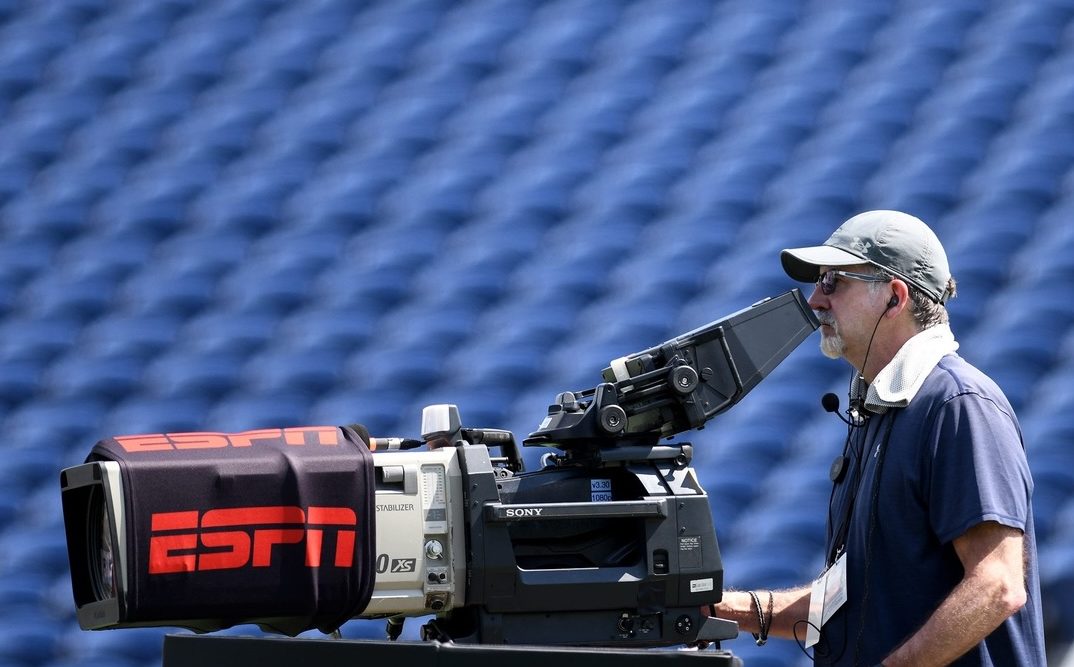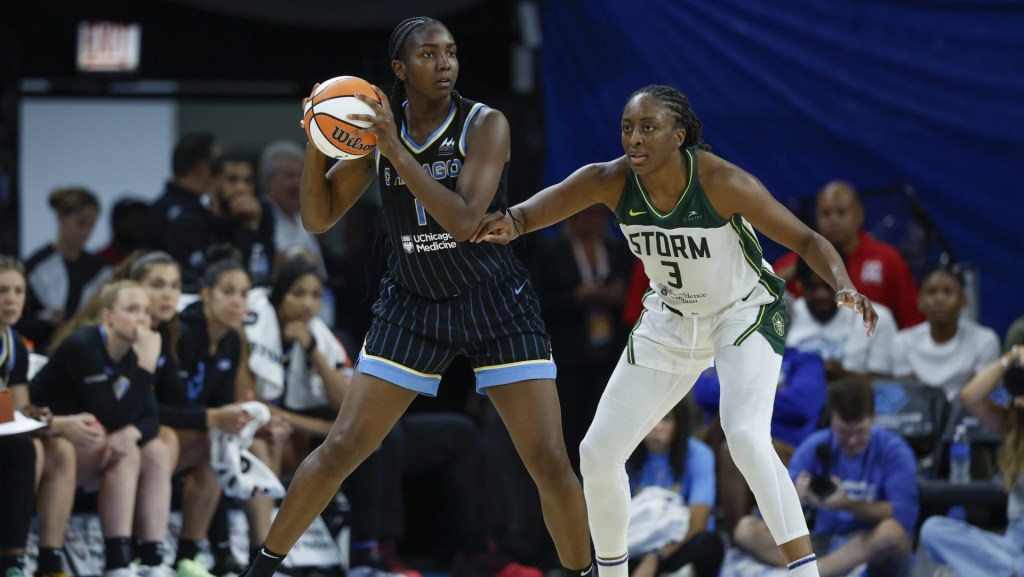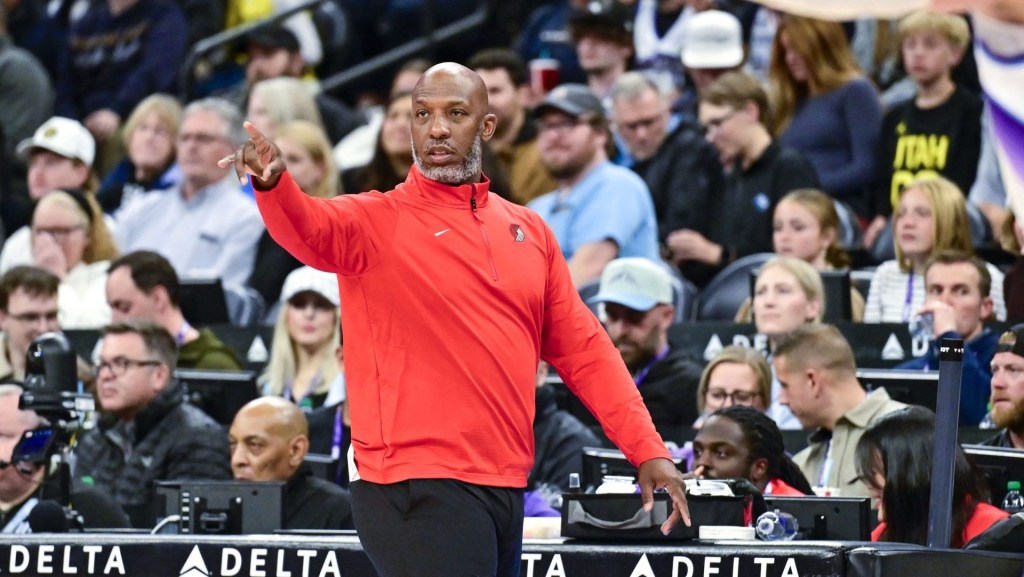The sports streaming joint venture between Disney, Fox, and Warner Bros. Discovery will have to wait, and it may never see the light of day at all.
A federal judge has blocked the planned Aug. 23 launch of Venu, a collaboration among the three media giants.
FuboTV in February sued over the planned app, and argued the launch should be enjoined for antitrust reasons. Judge Margaret Garnett agreed.
“[I]t appears to the Court that Fubo is likely to succeed on its claims” that Venu would “substantially lessen competition and restrain trade,” she wrote in a 69-page decision unveiling the somewhat shocking order.
The three media giants may seek emergency relief. A lawyer for WBD argued earlier this week that “a preliminary injunction would terminate the joint venture.” Fubo had argued that the lack of one would doom its business.
Fox, Disney, and WBD released a joint statement after Garnett’s ruling.
“We respectfully disagree with the court’s ruling and are appealing it,” the statement said. “We believe that Fubo’s arguments are wrong on the facts and the law, and that Fubo has failed to prove it is legally entitled to a preliminary injunction. Venu Sports is a pro-competitive option that aims to enhance consumer choice by reaching a segment of viewers who currently are not served by existing subscription options.”
On Feb. 22, FuboTV sued Disney, Fox, and Warner Bros. Discovery, saying the nascent app violated antitrust law. Plans for Venu, which was supposed to non-exclusively air the three media companies’ sports rights, were announced Feb. 6 during Super Bowl week, shocking the NFL and the rest of the sports world.
In her ruling, Garnett pointed to the defendants’ dominance in sports television.
“Together, they own over 60% of the telecast rights to nationally broadcast live sports, and an even larger share of the most-watched sports like football and basketball and the most-watched events like playoff or championship games,” she wrote. Fubo alleged in its suit that Venu was part of a long-running conspiracy to deprive Fubo of the chance to create its own digital sports bundle.
Fubo’s main argument, ultimately embraced by Judge Garnett, is the three sports programmers require pay TV distributors, like Fubo, to license non-sports channels to get access to the sports one. But that requirement is absent with Venu.
She wrote in her order that the defendants “have long used the combination of bundling and minimum penetration requirements to make live pay TV distributors carry content they otherwise would reject, or would only offer based on express customer preferences, and therefore, those distributors are forced to pass those superfluous costs on to consumers who, in many cases, also do not want that content, or would not pay for the content if they had the choice.”
In other words: Garnett agreed with Fubo’s main claim: that it was anti-competitive that Disney, Fox, and WBD were happy to license a selection of just their sports channels to their own app when they do not do that for other pay TV apps.
The judge did decline Fubo’s motion to enjoin the three media companies’ bundling practices. “The Court is not a central planner,” she wrote. “If bundling (as to Fubo specifically or as a general industry practice) is to be struck down as an antitrust violation, it should come only after a full trial on the merits.”
Venu’s launch would have marked one of the most significant steps in the evolution from linear to digital television.
A truly dedicated cord-cutter or cord-never sports fan needs scores of streaming services to get their sports fix. Priced initially at $42.99 a month, Venu gets at that problem, though not entirely. Roughly two-fifths of U.S. sports programming are not on the app, and more if WBD loses its NBA lawsuit. For example, CBS Sports president Dave Berson said this week that only three Kansas City Chiefs games would be on Venu this season.
Fubo argued the media programmers compel the streamer to buy non-sports channels to get access to the 14 sports channels spread among the trio (ESPN, ESPN2, ESPNU, SEC Network, ACC Network, ESPNews, and ABC from Disney; Fox, FS1, FS2, and BTN from Fox; and TNT, TBS, and truTV from WBD).
“Faced with the threat of disruptive competition from Fubo and other upstarts, Defendants have responded by locking arms (and locking others out) to steal Fubo’s core business idea—a sports-centric package of channels—while blocking Fubo from offering that same package,” Fubo’s lawyers wrote in the initial complaint. “The JV (joint venture) aligns the interests and incentives of three large horizontal competitors in the sports programming market. The proposed collusive arrangement will cause even higher prices and even worse terms for third-party video distributors such as Fubo—and the millions of American consumers who rely on those services.”
The media programmers, in a motion to oppose a preliminary injunction, were highly critical of Fubo, questioning its business acumen and judgment.
“Fubo hopes to throttle competition because it is (and always has been) a weak competitor,” the companies wrote in the late July motion. “It adds little value to the TV ecosystem. Unlike traditional cable and satellite companies, Fubo did not invest billions of dollars to build infrastructure to deliver content to homes; it uses the Internet through broadband connections built and supplied by others.
“And unlike Defendants and other programmers, Fubo did not risk billions of dollars to acquire unique content and then billions more to turn that content into attractive programming. Fubo thus remains an undercapitalized startup with minimal differentiation that acts as a middleman aggregator of content that other companies make possible.”
At last week’s preliminary injunction hearing, the trio argued Venu was a new competitor in sports streaming, and therefore not an antitrust violation. They also reject that they required Fubo to take non-sports channels, while pointing to non-sports channels that the streamer licenses. “Fubo licenses the Hallmark channels from Crown Media, which has no sports content at all,” the motion says.
Fubo launched in January 2015 with a focus on streaming live soccer matches, branding itself the “Netflix of soccer.” It quickly expanded to other sports and marketed itself as a cheaper alternative to traditional cable bundles. It grew to one million subscribers by 2022 and currently has 1.4 million subscribers, though it warned last week that hundreds of thousands of expected subscribers would vanish with the launch of Venu and force Fubo into insolvency.
Earlier this week in a post-trial motion, Walt Disney Co. asked the court to require Fubo to put up a $100 million bond to cover lost revenue if it did enjoin Venu. In a footnote in her decision Judge Garnett rejected that, writing that the defendants offered “no legitimate analysis” and Fubo had no time to respond.
The parties are appealing, but a source familiar with the case said Disney will “weigh its options” as the appeal proceeds. Disney’s main streaming focus is the launch of what it is calling flagship next year, putting the sports linear channels in a direct-to-consumer product. Were Disney to pull out—and there are no immediate indications that would happen anytime soon—that surely would torpedo Venu.
David Gandler, cofounder of Fubo, said in a statement included in a company press release, “Today’s ruling is a victory not only for Fubo but also for consumers. This decision will help ensure that consumers have access to a more competitive marketplace with multiple sports streaming options.
“But our fight continues. Fubo has said all along that we seek equal treatment from these media giants, and a level playing field in our industry. The proposed joint venture was only the latest example of anticompetitive practices that The Walt Disney Company, FOX Corp. and Warner Bros. Discovery have consistently engaged in for many years. We believe these practices monopolize the market, stifle competition and cheat consumers from deserved choice.”







![[Subscription Customers Only] Jun 15, 2025; Seattle, Washington, USA; Botafogo owner John Textor inside the stadium before the match during a group stage match of the 2025 FIFA Club World Cup at Lumen Field.](https://frontofficesports.com/wp-content/uploads/2026/02/USATSI_26465842_168416386_lowres-scaled.jpg?quality=100&w=1024)
![[Subscription Customers Only] Jul 13, 2025; East Rutherford, New Jersey, USA; Chelsea FC midfielder Cole Palmer (10) celebrates winning the final of the 2025 FIFA Club World Cup at MetLife Stadium](https://frontofficesports.com/wp-content/uploads/2026/02/USATSI_26636703-scaled-e1770932227605.jpg?quality=100&w=1024)








